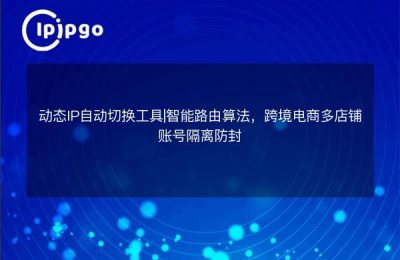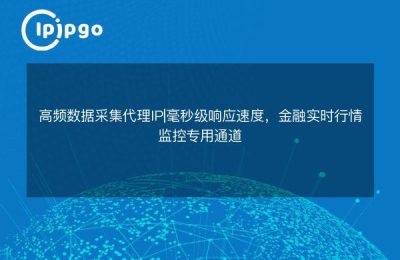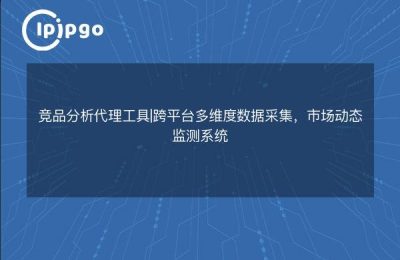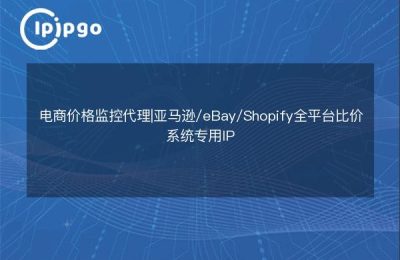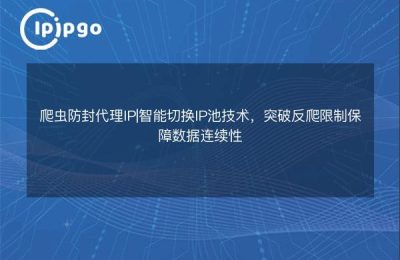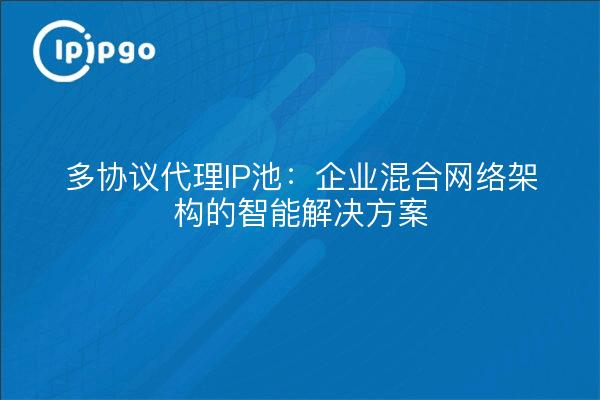
With the deepening of enterprise digitization, the traditional single network architecture has been difficult to deal with complex business scenarios. This article will be based on ipipgo years of service experience, reveal how to build a flexible and efficient hybrid network architecture through multi-protocol proxy IP pool.
I. Three major pain points of enterprise network architecture
In scenarios such as e-commerce operations and data collection, companies often face:
- High request blocking rate:Single-IP high-frequency access triggers platform risk control
- Protocol adaptation difficulties:Different business systems require different transport protocols
- Inefficient movement of resources:Static IP Pools Cannot Handle Bursting Traffic Demands
An e-commerce customer had a single IP high-frequency collection of commodity data, resulting in account blocking rate as high as 60%. ipipgo dynamic IP pool access, through the protocol of adaptive switching, successfully control the blocking rate of 5% or less.
II. Practical deployment of multi-protocol proxy IP pools
Step 1: Protocol Matrix Configuration
Select a protocol combination based on business requirements:
| Business Type | referral agreement | Configuration recommendations |
|---|---|---|
| Web Data Collection | HTTP/S | Setting up a 15 second/IP rotation cycle |
| Real-time Data Docking | WebSocket | Enable session hold |
| distributed task processing | SOCKS5 dynamic routing | Bind multiple exit nodes |
Step 2: Intelligent Scheduling Engine Deployment
Set up automatic switching rules via the ipipgo console:
- Automatic line switching for request delays >500ms
- Trigger replacement for >100 uses of a single IP
- Automatic switching to low peak pools during the early morning hours
Third, ipipgo features practical application of the function
1. Hybrid resource dispatch model
Dynamic IP pools work with static IP pools:
- 70% Dynamic IP Processing of Routine Requests
- 30% fixed IP for API interface docking
- Automatic activation of standby pools for bursty traffic
2. Precise geo-location binding
Supports city-level IP localization to meet the needs of specific scenarios:
- Localized service validation
- Regional data collection
- Multi-node load balancing
IV. Frequently asked questions
Q: How to avoid IP conflicts in multiple lines of business?
Assign exclusive IP segments to different departments through the sub-account system, and monitor the resource consumption of each business line in real time at the console.
Q: How to quickly expand capacity when encountering unexpected traffic?
ipipgo supports minute-level elasticity expansion. After submitting the demand at the console, the system automatically allocates the spare IP pool and completes the deployment within 5 minutes.
Q: How to verify the actual effect of proxy IP?
It is recommended to go through the three-stage testing method:
1. Free trial package to validate basic functionality
2. Simulation of real business stress tests
3. 7-day observation period to monitor stability
V. Enterprise-level service recommendation program
ipipgo Enterprise offers:
- Dedicated technical advisor 1 to 1 service
- Customized traffic alert mechanisms
- Customized stack for business scenarios
Newly registered companies can receive a testing package worth $200, with deployment guidance from a professional technical team.
By building an intelligent multi-protocol proxy IP pool, enterprises can not only improve business stability, but also reduce network operation and maintenance costs of more than 30%. It is recommended to analyze IP usage logs on a monthly basis to optimize the scheduling strategy according to business changes, so that network resources can truly become a digital engine to drive business growth.

